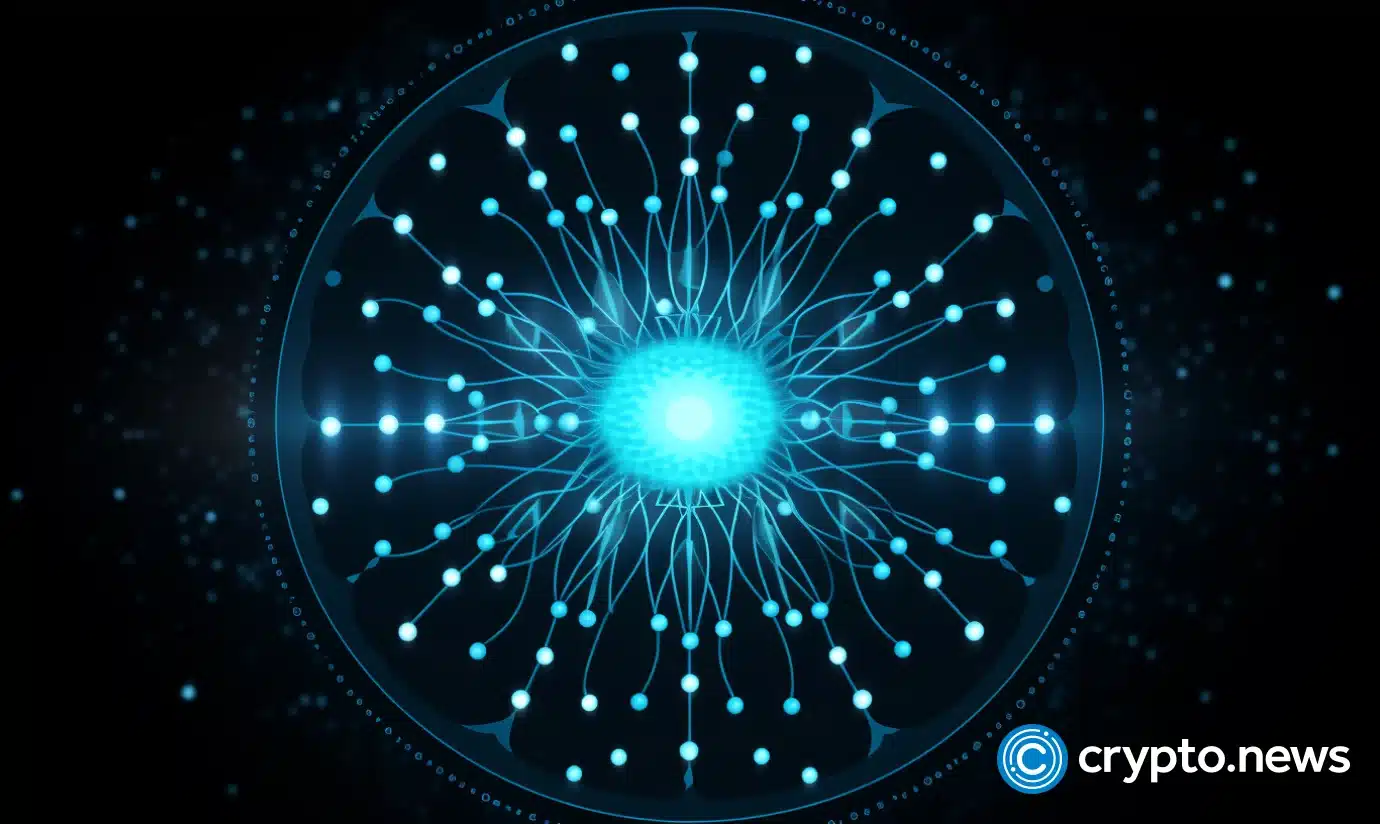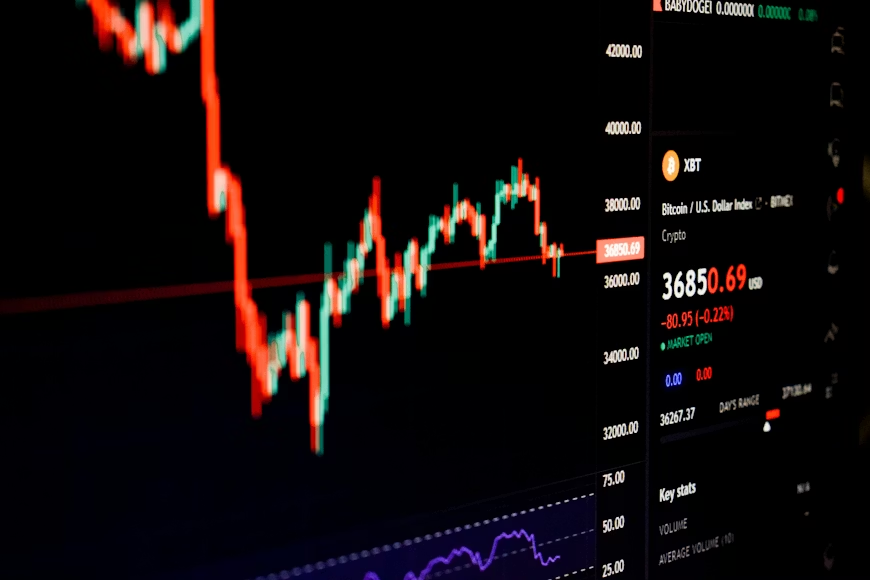4 Polygon Competitors For Big Returns in 2024
With the Dencun upgrade of Ethereum upon us and promising enhanced scalability and reduced fees, several Layer 1 and Layer 2 blockchain networks are competitors to Polygon.We’re taking a closer look at four...

With the Dencun upgrade of Ethereum upon us and promising enhanced scalability and reduced fees, several Layer 1 and Layer 2 blockchain networks are competitors to Polygon.
We’re taking a closer look at four projects in particular—Polkadot, Optimism, Arbitrum, and Cardano—and gauging their potential for returns in 2024.
4 Polygon Competitors
- Polkadot (DOT): A sharded protocol connecting multiple blockchains for improved scalability and interoperability.
- Optimism (OP): utilizes optimistic rollups as an Ethereum Layer 2 scaling solution, enabling faster and more cost-effective transactions
- Arbitrum (ARB): another Ethereum Layer 2 network that leverages optimistic rollups. It accelerates speed and reduces costs, demonstrating its position as a leading graduate-level network.
- Cardano (ADA): A proof-of-stake Layer 1 blockchain platform focused on security, sustainability, and scalability.
What is Polkadot (DOT)?
Polkadot is an advanced blockchain protocol that joins many specialized chains into one network. Its sharded structure allows transactions to be processed simultaneously, significantly increasing scalability. Polkadot’s Relay Chain enables smooth communication and exchange of value between different blockchains.
The DOT token—Polkadot’s governance symbol—permits holders to cast votes on protocol upgrades; furthermore, it serves for staking—an action that fortifies the network. Polkadot’s active developer community, coupled with an expanding ecosystem of parachains, finds itself in a good position to eat into Polygon’s market share.
Polkadot’s price performance over a year. Polkadot stands out for its unique features, such as its sharded structure, Relay Chain allowing different blockchains to work together, and shared security system. The goal is to build a network where multiple blockchains can easily interact and exchange information. This ability for blockchains to communicate with each other could make Polkadot a more attractive platform than networks like Polygon that operate independently.
What is Optimism (OP)?
Utilizing optimistic rollups, Optimism is a major Ethereum Layer 2 scaling solution: it presents significantly reduced fees and accelerated transaction speeds compared to the base layer of Ethereum all while maintaining its robust security inheritance. Another plus is Optimism is Ethereum Virtual Machine (EVM) — equivalent so developers can effortlessly port their Ethereum dApps.
After the Ethereum Dencun upgrade, Optimism and other rollups anticipate a potential fee reduction of up to 90% due to decreased data blob transaction costs. This significant improvement may enhance user and developer appeal towards Optimism, potentially surpassing Polygon’s.

Optimism sets itself apart not only with its speed and cost-efficiency but also through an open-source codebase, a vibrant developer community, and a retroactive public goods funding model. In recognition of these advantages, several major DeFi protocols have already opted to deploy on Optimism. This has led to a much larger ecosystem and more money invested in the platform.
What is Arbitrum (ARB)?
Another top Ethereum Layer 2, Arbitrum leverages optimistic rollups and distinguishes itself with its EVM compatibility and developer tooling. Similar to Optimism, it presents significantly reduced fees compared to the Ethereum mainnet, and also, like Optimism, these fees are predicted to decrease even further after Dencun.
Nearly four million unique addresses and over 400 dApps have strongly adopted Arbitrum. Leading DeFi protocols such as Uniswap, GMX, and Camelot are part of its ecosystem. The recent introduction of the ARB token through an airdrop has significantly enhanced Arbitrum’s visibility.

High EVM compatibility, robust developer tooling, and an extensive ecosystem are Arbitrum’s principal advantages. Although Arbitrum currently has less money locked in its platform than Polygon, it’s growing quickly, and the Nitro upgrade has made it a strong competitor.
What is Cardano (ADA)?
Designed for scalability and sustainability, Cardano represents a proof-of-stake Layer 1 blockchain. It employs an extended unique unspent transaction output (EUTXO) model and leverages the Plutus smart contract language to enhance security and efficiency.
With its research-driven approach, Cardano aims to offer a more energy-efficient solution than Ethereum and Polygon. The release of the Hydra scaling solution will also amplify Cardano’s speed and enhance its network speed.

Through its science-backed development, proof-of-stake consensus, and focus on peer-reviewed upgrades, Cardano is one to watch. With smart contract capabilities, support for native tokens, and a burgeoning DeFi ecosystem, it poses as a potential competitor to Polygon.
Analyzing the Long-Term Potential of Polygon’s Competitors
Polygon faces potential challenges from these four unique competitors: Polkadot offers interoperability; Optimism and Arbitrum offer EVM compatibility and low fees; and Cardano boasts energy efficiency.
Keep in mind that the blockchain industry is highly competitive and fast-moving. Factors like network effects, ecosystem growth, and delivering on roadmap promises will play a big role in deciding which projects come out on top. As always, doing your homework and understanding the risks before investing in any crypto project is crucial.
What are the use cases for Polkadot, Optimism, Arbitrum and Cardano?
To understand the future possibilities of Polkadot, Optimism, Arbitrum, Cardano, and Polygon better, it is important to consider their usefulness. These platforms all want to make transactions quicker and less expensive. In addition, they want to support more development in decentralized applications.
As various blockchains try to talk and share worth with each other, they might see significant use in Polkadot’s ability for chains to work together. The fact that Optimism and Arbitrum can work efficiently with Ethereum’s virtual machine catches the interest of developers from Ethereum who want their decentralized applications to perform better. Similarly, Cardano focuses on thorough checking based on strict research principles, making it appealing for organizations wanting severe adoption.
READ ALSO

Disclaimer
This article is provided for information only. It is not offered or intended to be used as legal, tax, investment, financial, or other advice.
Delegate Your Voting Power to FEED DRep in Cardano Governance.
DRep ID: drep12ukt4ctzmtf6l5rj76cddgf3dvuy0lfz7uky08jfvgr9ugaapz4 | We are driven to register as a DRep by our deep dedication to the Cardano ecosystem and our aspiration to take an active role in its development, ensuring that its progress stays true to the principles of decentralization, security, and community empowerment.DELEGATE VOTING POWER!








